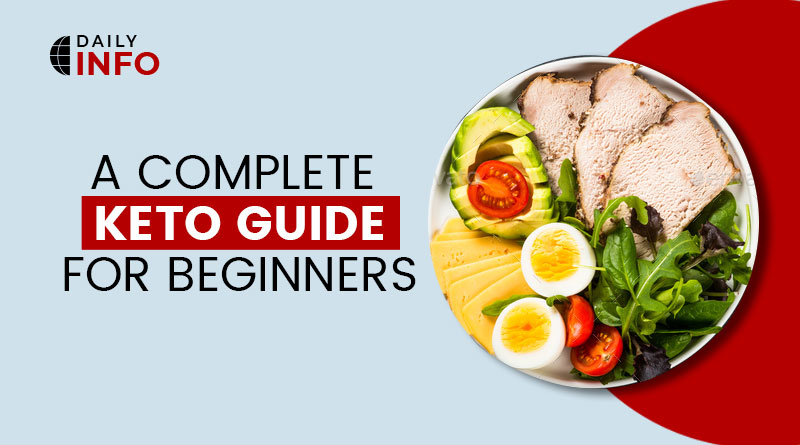Complete Beginners Guide To Ketogenic Diet
Have you been watching the ketogenic diet plan stories on your social accounts? The phrase “Eat high fats for weight loss” is all the rage. You may have heard about 3 big macros in the keto diet Fats, Proteins, and carbs. Stay energized during all-day activities and feel the better version of yourself without counting calories or skipping delicious meals.
Yes, you heard us right! Markedly, the Keto diet is gaining popularity in weight loss without having to worry about Fats. But understand the science behind the keto diet first before getting it started. Generally, glucose and ketones are the two fuel resources in our body. After taking carbs, our body tends to convert them into glucose and sets the blood sugar level on a roller coaster. This temporary energy burst signals the pancreas to release Insulin for dropping out glucose from the bloodstream.
Meanwhile, the extra glucose is stored in the Liver and the rest is as Fats. Subsequently, blood sugar level declines, and in return, the body demands more carbs. This is where ketones come into action. The ketosis state makes the body incredibly adaptive to burn fats instead of glucose for fuel. Amazingly, your body won’t experience mental fogginess and energy crashes as it does on having carbs. Reducing carbs, moderating proteins, and maximizing fats can make your transition pretty simple within a few weeks.
Popular Recommendation: The Best Diet and Healthy Habits You Can Follow
Foods to Embrace
Limit your carbs to 20-25g/day and get the keto-friendly nutrient-rich diet from non-starchy sources. Look for the right balance of proteins, vitamins, and low glycemic foods for the long-term effectiveness of the ketogenic diet plan.
- Brocolli, kale, lettuce
- Green beans
- Cabbage/cauliflower
- Turnips
- Bacon
- Lamb
- Eggs
- Beef and Poultry
- Seafood (salmon, mackerel)
- Plain yogurt
- Almonds, walnuts
- Flaxseeds
- Dark chocolates
- Butter and ghee
- Olive oil and more
Foods to Avoid
- High sugar fruits
- Grains
- Pasta
- Bread
- Corns
- Beet
- Potatoes
- Dates
- Rum and cola
- Honey, maple syrup
- Sauces, ketchup, and other condiments
Additional Health Benefits
Evidence shows that a variety of potential health benefit comes while being on keto. Certainly, this diet plan has been linked to various short-term mental and physical strengthening. In addition, it heals brain injuries, improves blood pressure and sugar levels, cures multiple cancers, and is also effective against PCOs. Besides weight loss, some promising results of the ketogenic diet plan against common diseases are given below:
Epilepsy: Dating back to a classic era, the keto diet has been effectively curing refractory epilepsy in most children. Studies revealed that high fats, low carbs diet reduce seizures by 50% if followed consistently. Medical guidance is required to ensure proper intake of this style of eating to maximize the results to their fullest.
Acne: Low-carb diet drastically reduces the insulin levels in the blood which contributes to a decrease in sebum and androgen hormone production. A high-fat diet is filled with offerings like omega-3 and antioxidants that help to minimize inflammation and result in proven skin glow and acne reduction. Likewise, Omega-3 fatty acids tend to improve the overall skin and make it resistant to environmental harms like UV rays, etc.
Parkinson’s Disease: Interestingly, the keto diet showed improvements in easing the motor symptoms of Parkinson’s disease. The fat-derived diet adds strategies to reduce to counteract motor difficulties in a non-pharmacological way. Lastly, it is also advantageous in reducing anxiety, depression, C-reactive protein, and insulin levels.
Risk Factors
Undeniably, the keto diet is head to sustain and you might not receive enough nutrients as per your body’s demands. Concurrently, you’re missing fresh fruits rich in vitamins, fibers, and minerals. Some patients with renal and heart disorders experience dehydration and other serious conditions due to avoiding glycogen and taking high fats.
Must Read: Food Banned Around The World

